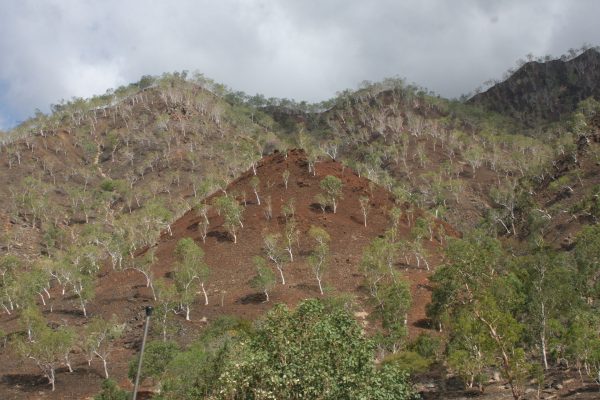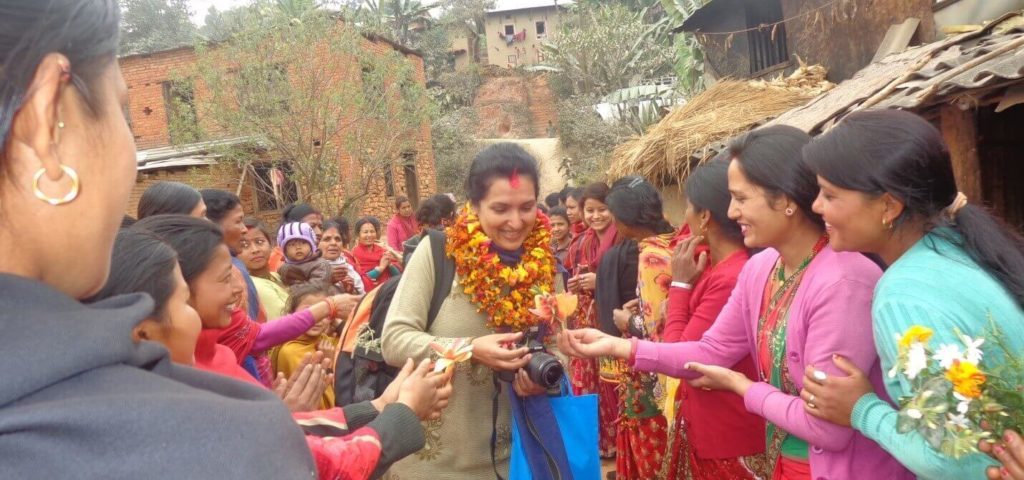
The Cultural and Social Challenges to Slowing the Pandemic in Africa
May 8, 2020
Edd Wright on Climate Resilience in Timor-Leste
June 2, 2020Interview by Sai Nikesh D
Covid-19 crisis has hit every part of the world, disturbing life and living altogether. Governments, NGOs, individuals and more sections of social workers are relentlessly working for public welfare.
In the process, we got in touch with Ms. Srijana Karki, Regional Director of South Asia at World Neighbors (wn.org), to learn the World Neighbors role in fighting the Covid-19 in Nepal and elsewhere.
Here are some excerpts from the interview:
1. NSB: As an organization working in the public domain for years, how do you see the status of human life, globally, in the present-day scenario?
Srijana Karki: This is definitely a time of uncertainty, challenge and confusion as the situation is life threatening and unpredictable. It is difficult for people to adjust to new norms like working from home, lockdowns, keeping physical distance, virtual ways of socializing with family, friends, and virtual meetings. For many, daily sustenance has become a struggle. The nationwide lockdown has had negative impacts on all the sectors.
Given the situation that hardly anyone faced before – I see people around the world are resilient and have not lost hope to get back to normal life.
This is the time of survival for human species no matter how hard it is – the world economy will revive with time. Anywhere in the world, in this pandemic, the most significant thing that I have noticed is how resilient people are – so we should hold on to hope for the better as the pandemic will be over – we just have to stay sensible in the meantime.
2. NSB: How do you the see the impact on Covid-19 on life and living, globally? Any significant stats and figures are really appreciated!
Srijana Karki: The impact of Covid 19 is on multiple levels and spheres of life and living – for many, situations will probably never be the same post Covid 19. As of May 12, 2020, globally, there are 4 088 848 positive cases and 283 153 deaths, as mentioned in a UN report.
The COVID-19 outbreak affects all segments of the population and is particularly detrimental to members of those social groups in the most vulnerable situations, including people living in poverty situations, older persons, persons with disabilities, youth, and indigenous peoples.
Early evidence indicates that the health and economic impacts of the virus are being borne disproportionately by poor people. For example, homeless people, because they may be unable to safely shelter in place, are highly exposed to the danger of the virus.
People without access to running water, refugees, migrants, or displaced persons also stand to suffer disproportionately both from the pandemic and its aftermath – whether due to limited movement, fewer employment opportunities, increased xenophobia etc.
If not properly addressed through policies, the social crisis created by the COVID-19 pandemic may also increase inequality, exclusion, discrimination and global unemployment in the medium and long term.
Comprehensive, universal social protection systems, when in place, play an important durable role in protecting workers and in reducing the prevalence of poverty, since they act as automatic stabilizers. That is, they provide basic income security at all times, thereby enhancing people’s capacity to manage and overcome shocks.
3. NSB: What difference do you see in the impact of Covid-19 on developed, developing and poor nations?
Srijana Karki: As I mentioned , every nation is impacted in different ways – I do not see any distinct pattern of impact for each category of the nations – this virus does not discriminate – rich or poor – powerful or powerless – man or women – child or young – healthy or sick – royalties or public – degree of vulnerability differs but they all have been affected – every nation’s economy has slowed down – regular routine has been disrupted – it makes sense when we say “ we all are together in this “ – the only difference I see among these nations is how each nation handled or is handling the pandemic.
Whereas, in most of the poor nations, even though they had a window period to prepare and learn from the rich nations and contain the spread of the virus – they seemed very weak in their rapid response and poor in governance and communicating to the public. They are still grappling with economic and social issues rendered by the pandemic. Even though measures to contain the virus were implemented – they were ineffective.
The other stark difference I noticed is – Poor nations with weak health systems are drowning in debt, while rich nations are showing they can unlock trillions to build new hospitals and keep their economies alive.
While dealing with the pandemic many developed nations like Canada, New Zealand and other European countries are already planning and acting on future steps.
Developed and developing nations mostly deal with health of the people, while poor nations have to deal with not just health but hunger too.
Another challenge for poor countries is being responsible for one’s behavior – social distancing seems impossible in these countries owing to various reasons.
However, this pandemic has blatantly exposed the weakness of institutions upon which, the majority of the world’s populations rely – especially developed nations like the USA, Spain and Italy.
On the positive side – the impact of Covid 19 has made every nation rethink and act on their relationship with nature. For example – Canada has tied corporate coronavirus relief to climate action as a part of a global push for a green recovery. World leaders of influential nations are increasingly pushing for a green recovery to support national climate goals and the planet’s wildlife.
The European Union is urging countries to incorporate climate action into coronavirus stimulus plans. These are a few examples of developed nations realizing where we went wrong to invite the pandemic and already coming forth with an action plan in stages.
Poor countries are way behind in contributing to global solutions at this moment.
4. NSB: As a renowned organization, where do you find your role in helping your partner nations and even others in fighting the COVID-19 pandemic?
Srijana Karki: In Nepal, we work with 49 communities in five districts – Kavre, Sindhupalchowk, Tanahu, Chitwan and Udaypur (currently a hotspot for coronavirus positives) – these are small settlements – mostly remote- off the road with less or no support from the outside.
Likewise, in Bihar, India, World Neighbors is working in 20 villages of Madhubani district.
We work in close coordination with local governments in all these areas. We are a development organization with a focus on building capacity of rural communities to deal with their development issues and collectively find lasting solutions to them with equal participation of men and women, together with local governments.
We have been advocating for long-term development solutions rather than quick fixes – we have been teaching and helping communities to become self-reliant and resilient. In the present context, its importance is even more highlighted. We would continue to so the same.
5. NSB: Coming to the case of Nepal, how is World Neighbors assisting the country in its fight against Coronavirus?
Srijana Karki: So far, our program communities are devoid of coronavirus infections. We are in touch with the ward and municipality offices.
As our program beneficiaries are small farmers and they tend to their fields, we were quick to respond in conducting awareness sessions for our program communities just before the nationwide lockdown. We are ready with relief support for our program communities if the need arises.
What we’ve done, what we do in Bihar, India and Timor-Leste and all the communities in which we work in every country, is help communities prevent illness.
Specifically, this means water, sanitation and hygiene (WASH) projects-access to clean water, handwashing, toilets, keeping livestock from water sources and more. This all becomes part of everyday life and reduces the transmission of all communicable diseases.
A person cannot work and support their family and contribute to their community if they are ill. Health is a key part of development. Treating illness is very important. Preventing it is even more so. Prevention reduces suffering and costs.
One result of this crisis should be an even greater understanding of the importance of investing in WASH initiatives.
6. NSB: What level of coordination and support are you getting from the respective governments (in Nepal and elsewhere) under your initiatives against Covid-19?
Srijana Karki: In our program communities, we are working closely with local governments (ward and municipality office) and working as their extended hands.
Just a week before the announcement of the nationwide lockdown, when the coronavirus positive cases were less than five, we did a situation update in each of our program communities.
In that quick survey, we found out that in many program areas, there was not much awareness nor any campaigns happening about informing the public about safety measures against the coronavirus.
Many people working in cities returned to villages and they were mingling with their neighbors.
In those places, we brought this issue to the notice of ward officials and urged them to take action, understanding the gravity of the situation.
When farmers had a problem transporting their produce to the market due to the nationwide lockdown, our field representative coordinated with the ward/municipality office to organize transportation to take the produce (mostly vegetables ) to the market and they responded pretty quickly.
In one of the program areas (Khanbu, Udaypur) – communities ran out of essentials like oil and salt – there also, our field representatives coordinated with the ward office to arrange those things.
Moreover, our field representatives have become contact points for local governments for either gathering reliable information and data of that particular community or passing on information to the communities about relief support or others related to COVID 19.
7. NSB: Would appreciate if you can brief us about special measures you have taken against COVID-19 crisis till date?
Srijana Karki: Considering our holistic development approach, our programs are catered to the needs and priorities of the communities with “self-reliance and resilience” as an end result. So the work that we have done in the past and still continuing is actually helping communities in this crisis.
For example – we worked with communities to preserve and recycle local seeds, to prepare organic fertilizer and pesticides using locally available resources, composting, maintaining proper hygiene and sanitation, hand washing, keeping communities clean – all these are extremely useful at this time of crisis.
We recently followed up with our program communities and our field representatives who are mostly members of the same community where our programs are running.
They said farmers are increasing the volume of fertilizers and pesticides that they learned through our program, using local seeds for the next cultivation and are well aware about the crisis and following safety measures.
They are encouraging returnee family members to stay in quarantine before coming to their homes.
We are in the process of planning for the next five-year project where we have focussed our support on sustainable agriculture, rural livelihoods, community-based natural resources management, building resilience against disasters and community and reproductive health, combining all these components together we envision thriving communities.
8. NSB: What is your take on the future of life and living post the Covid-19 crisis and as lockdowns are eased?
Srijana Karki: I feel we have barely learnt from our past mistakes -past wars, pandemics, exploitation of natural resources and not aligning development with nature conservation.
We are already paying a huge price – climate change is in the face of every nation and people. So, from the looks of that trend, I at times tend to think things will go back to the same normal even though we talk about changing the definition of normalcy before the Covid-19 crisis.
But, I feel we should not take this early warning lightly. This is also the time to act on the global level on fixing our relationship with nature as human wellbeing lies in being close to nature – not running away from her. We also have to rethink the way we are running our economies – I feel that we have to work together to become self-reliant and not just talk about it endlessly.
I also hope that there will be substantial support and transformation in the agriculture sector which is being highlighted at this time as a savior of failing economies and a way to curb rural migration.
I strongly hope small farmers across the globe get their due respect and support since they continue to feed us and nourish us even at the time of crisis.
Finally, I hope there’s a renewed appreciation for public health initiatives. Of course, treating individuals who become ill is essential. And, there needs to be greater investment in health care facilities. But so much of what ails us can only be addressed collectively, through policies and investments that involve and impact entire populations.
Pollution is a good example. Hundreds of thousands of deaths a year are connected to air pollution. Reducing that, even one day eliminating it, requires collective action. As we see with COVID-19, the same is true with communicable diseases.
As we’ve discussed, that means relatively simple and cost-effective investments in water, sanitation and hygiene initiatives that include governments and civil society groups and empower communities to help protect themselves.
9. NSB: Would you like to give any special message to our Nepali readers, globally?
10. NSB: Finally, where do you wish to see the organization’s role in the future, in the global run for safer ecosystem and sustainable living?
Srijana Karki: Our programs and methodologies are based on the foundation of a holistic approach towards life and living. We promote inclusion while executing our program in rural communities so that they lead the programs while we support them from the back.
As an organization focussing on long-term development, we wish to collaborate more with other like-minded organizations and the local governments for collective efforts towards sustainable solutions and resilient communities.


